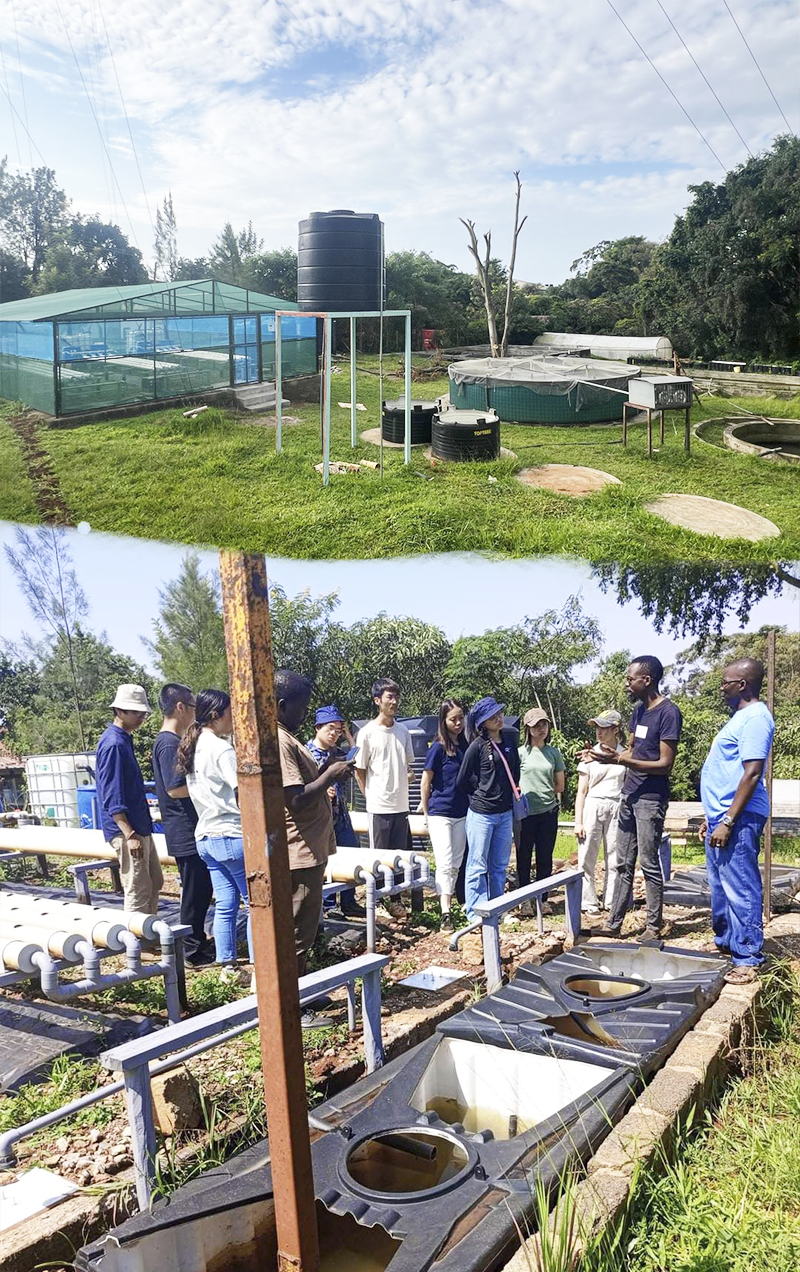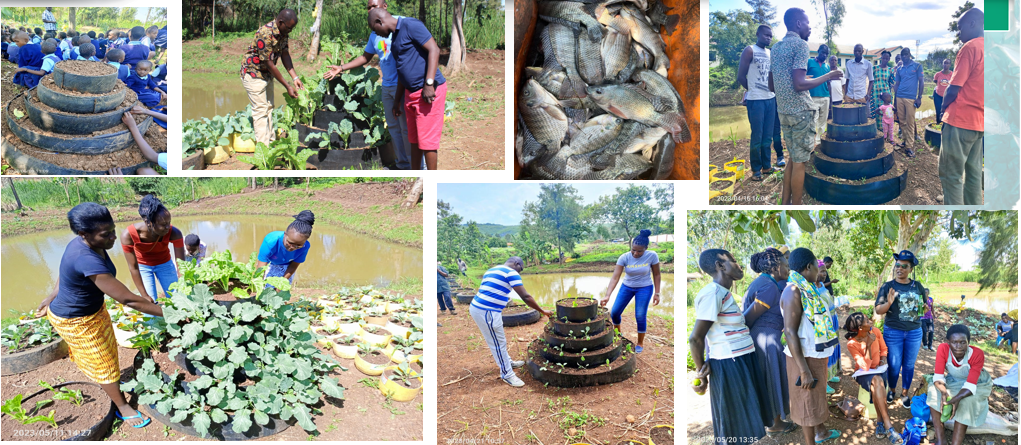About Animal and Fisheries Sciences
To become a leader in Animal and Fisheries Sciences in Kenya, with a focus on excellence in teaching, research, and community outreach, and the development of sustainable and profitable animal-based food production systems.
Our mission is to train quality intellectuals and to generate and disseminate demand-driven scientific information in animal and fisheries sciences in order to promote food security, sustainable exploitation of natural resources. Through our efforts, we seek to contribute to the development of sustainable and profitable animal-based food production systems that enhance food security, create employment opportunities, and contribute to economic growth in Kenya.
The general objective of the department is conduct quality teaching, research and community outreach; providing timely services to foster and develop academic excellence by training practice-oriented manpower, carrying out basic and applied research at all levels of study, that can contribute effectively to social, intellectual and academic development in the community, the nation and the community of nations.
Specific quality objectives
i). To enhance annual student enrolment in the departmental programs
ii). To expand research collaboration networks to increase research grants and number of published articles in peer reviewed journals
The Department of Animal and Fisheries Sciences (DAnFis) is committed to supporting Kenya's food security agenda and its vision for industrialization by 2030, in alignment with the Sustainable Development Goals (SDGs). Our Animal and fisheries science programs play a critical role in supporting national government food security plans by ensuring the availability of safe and nutritious animal and fisheries products, promoting sustainable production practices, and supporting economic growth and poverty reduction. Our fisheries programs support the health of our oceans, rivers, and lakes, and in preserving the diversity of aquatic species for future generations. These are strategic pillars of exploiting the blue economy resources, which have immense socio-economic potential for humanity. Meanwhile, our animal science programs support food security by advancing knowledge and practices that can help to optimize animal health, welfare, and productivity, while minimizing environmental impacts and ensuring the safety and quality of animal-based food products.
Dean recognizes the crucial role played by animal, fisheries, and aquatic resources sectors in achieving sustainable food and nutrition sufficiency, as well as national economic progress. To achieve these goals, the department prioritizes sound teaching, research, capacity building, and technology transfer initiatives aimed at educating and training young adults and communities. Currently, we offer robust and tailor-made undergraduate and postgraduate research programs that allow students to engage in interdisciplinary research activities relevant to real-life situations in the fields of Fisheries and Aquaculture, Animal Science, Aquatic Resources Conservation and Development, and Animal Health and Production. In addition, the department offers programs, such as the Diploma in Aquaculture Production and Management and the Diploma in Animal Health and Production, to further support these objectives
The department provides distinguished teaching and research programs to cultivate human capacity with the necessary knowledge, skills, and innovative technologies to support sustainable production and management of animal and fisheries disciplines. This is accomplished through quality teaching techniques that include lectures, tutorial sessions, coaching, mentorship, field visits, attachments, internships, and practical laboratory sessions. The aim is to produce graduates with a strong mindset to become industry leaders and change agents, equipped with the relevant expertise applicable to their respective fields.
The department is dedicated to conducting innovative and demand-driven basic and applied research in animal and fisheries sciences to contribute to socio-economic development. Undergraduate and postgraduate students are given appropriate supervision and mentorship to conduct research on various disciplines related to animal production systems, breeding, health and nutrition, fisheries and aquaculture production, aquatic sciences conservation, and socio-economics within the respective value chains. The outcomes of these research studies are disseminated through open agriculture field days, publications in high-quality peer-reviewed scientific journals and conference proceedings. To perfect research activities, we have maintained a robust collaborative network with local and international institutions that share similar objectives in animal, fisheries, and aquaculture sciences, as well as related disciplines. These partnerships facilitate joint exchange programs and research initiatives. Among the department's local collaborators are the Kenya Marine and Fisheries Research Institute (KMFRI), Kenya Agriculture and Livestock Research Organization (KALRO), Ramogi Institute of Advanced Technology (RIAT), Jomo Kenyatta University of Agriculture and Technology (JKUAT), University of Eldoret (UoE), and University of Nairobi (UoN), Egerton University, among others. The international collaborators include the Tanzania Fisheries Research Institute (TAFIRI), National Fisheries Resources Research Institute (NAFIRI) Uganda, Nagasaki University in Japan, University of Gothenburg in Sweden, and Wageningen University and Research, among others. With the support of our international partners, we have direct links to connect our students to international universities through mobility, exchange and post-graduate programs.
The department actively engages with communities through outreach activities, public capacity building, on-farm research, and consultancy initiatives. As part of its commitment to becoming a leading reference center for animal and fish breeding, nutrition, and health in Kenya, the department aims to provide timely advisory services and consultancy to stakeholders in the livestock industry. To achieve this goal, we have developed an outreach program that involves faculty, staff, and students. The outreach program focus on: 1) Disseminating current research on animal and fisheries production and health to producers and consumers, 2) Delivering extension packages on appropriate animal and fish husbandry, organic animal production, food safety, and health to farmers within the region, 3) Providing demand-driven animal and fish production and health services to the farming community, such as summer camps, field days, artificial insemination, veterinary clinical services, and laboratory analysis services, 4) Empowering youth and promoting gender equality through agri-entrepreneurship initiatives.


